Steam doesn’t have many gay sex games. Plenty of anime boob games, sure, but not so much with hot dudes getting it on. Robert Yang is trying to change that.
(Warning: some possibly NSFW images ahead.)
Yang’s gained a fair amount of notoriety over the years with experimental games like car sex game Stick Shift. He uses video games to explore sexuality through mechanics rather than, say, lengthy storylines or throwaway fan service. Or, as Yang puts it, “I feel like my games earn their dick.”
Previously, however, Yang hadn’t released any of his games on Steam. Radiator 2 is a compilation of games about consensual spanking, suggestive popsicle licking, and doinking your car. It might sound kinda silly, but Yang’s reason for putting his games on Steam — a platform that’s sometimes hostile to non-traditional games — is 100 per cent serious. “This is one of the primary tenets of the modern gay rights movement: that we must be visible and present, or else we will be erased,” he wrote. “It’s important that there’s a gay sex game available on Steam, of all places.” I sat down to talk with him about that.
Kotaku: How has Radiator 2 been received on Steam so far?
Robert Yang: It’s surprisingly going OK. It’s at 85 per cent positive views. That’s 200 something positive reviews or something, 300 something reviews total. A lot of people are just having fun with the Steam reviews, saying “This game made me gay. This game, my girlfriend saw me playing it, and then I played it more.” A lot of comments like that, that kind of almost border on homophobia a little, but I’ll let it slide because I see much worse abuse inflicted on me. That’s OK, I’ll tolerate those. I’ll take what I can get.
Kotaku: Yeah, it is that kind of other thing. It’s not people being outwardly shitty, but it’s this big disclaimer of, “DON’T WORRY GUYS, I’M NOT ACTUALLY GAY” followed by, essentially, the idea that homosexuality is a joke.
Robert Yang: I feel like the idea of being “made gay” is losing its meaning, though. As a gay person, I don’t want to take away the politics of being gay. But it seems a lot more common or widespread to say video games made them gay for certain characters or something than it was before. Like the Captain America stuff, or Star Wars with Poe Dameron. A lot of that fandom is pro gay, pro-LGBT people talking about how gay they are for these characters. That’s their way of expressing love for this licensed property or image or whatever.
I guess I’m OK with that, that’s not the worst thing. I think that’s kind of what games and video games and comics, a lot of those uses of language are merging in this weird way that I haven’t really figured out yet.
Kotaku: It does feel like a normalization of the idea of being like, “Yes, I’m attracted to this person who is the same physical sex characteristics as me, and I’m OK with stating it out loud.” But I do suppose I could see also how it might trivialize the idea of what people who are actually gay go through.
Robert Yang: I’d say that’s a good way of describing the trade off there, or the stakes of talking like this. Yeah, it normalizes it but it also trivialises it. I guess that’s the age old conundrum with identity and assimilation.
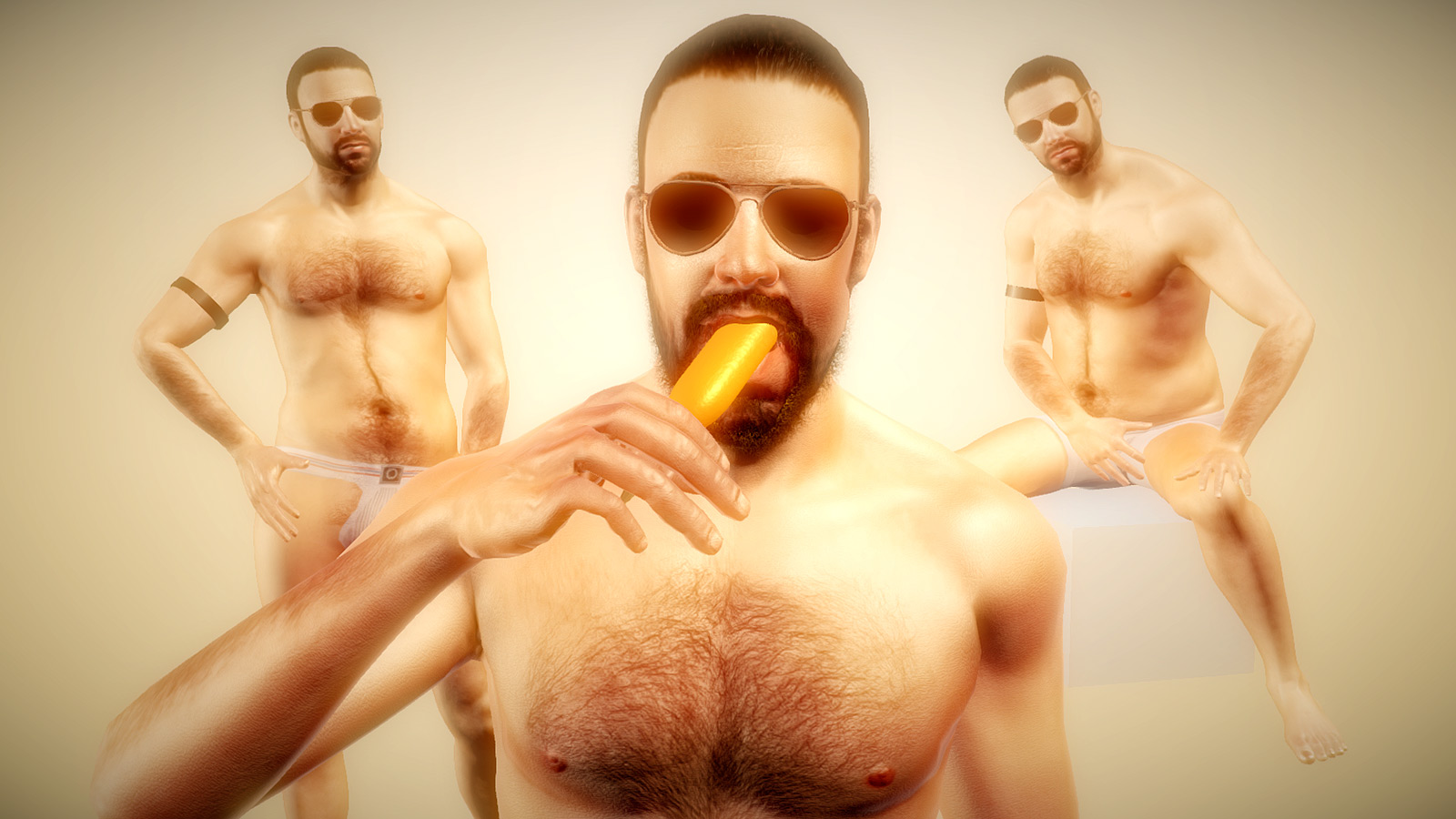
Kotaku: You’ve said your goal with Radiator 2, more than anything, was just to have a game of this sort on Steam. You weren’t quite as concerned with the overall reception of it, as much as that it would be there. What did you mean by that?
Robert Yang: By that I mean that, I’ve said before that I feel like with a lot of these gay sex games I’ve been making, not that many people actually play it. Most people just watch a YouTube video of it, or read about it, or something. I was trying to apply that same kind of philosophy to this new release on Steam, where I feel like not that many people actually going to play it, or at least I wasn’t predicting that many people that were going to play it. To me, it was more important to be a gesture, to just be there to have a store page there, to know that these games are there. That’s what I meant.
Kotaku: How effective are the tools that you have to moderate your Steam forum? Are they fairly basic or can you exercise a pretty decent degree of control within the whole thing?
Robert Yang: I wish I could delete the Steam forum for my game, but Steam forces you to have a forum so I have to keep it there. I’m reluctantly checking in every few days or so, or once a day to moderate and delete reported posts. I’m definitely getting my share of homophobia. Not as much as I expected, though.
The tools are OK. People can report posts and then as the moderator, I get to see a list of all those reported posts and then take action. In my case, I’m usually just permanently banning people instantly without any appeal or care. The weird thing about that is, though, when I ban them, Steam sends them a message that they’re banned. Then they can privately message me back about the ban, which is weird. It’s like when I ban them, Steam is like, “OK, well here, have a private, personal channel to this person who just banned you.” Hopefully they don’t get abusive. It’s kind of weird.
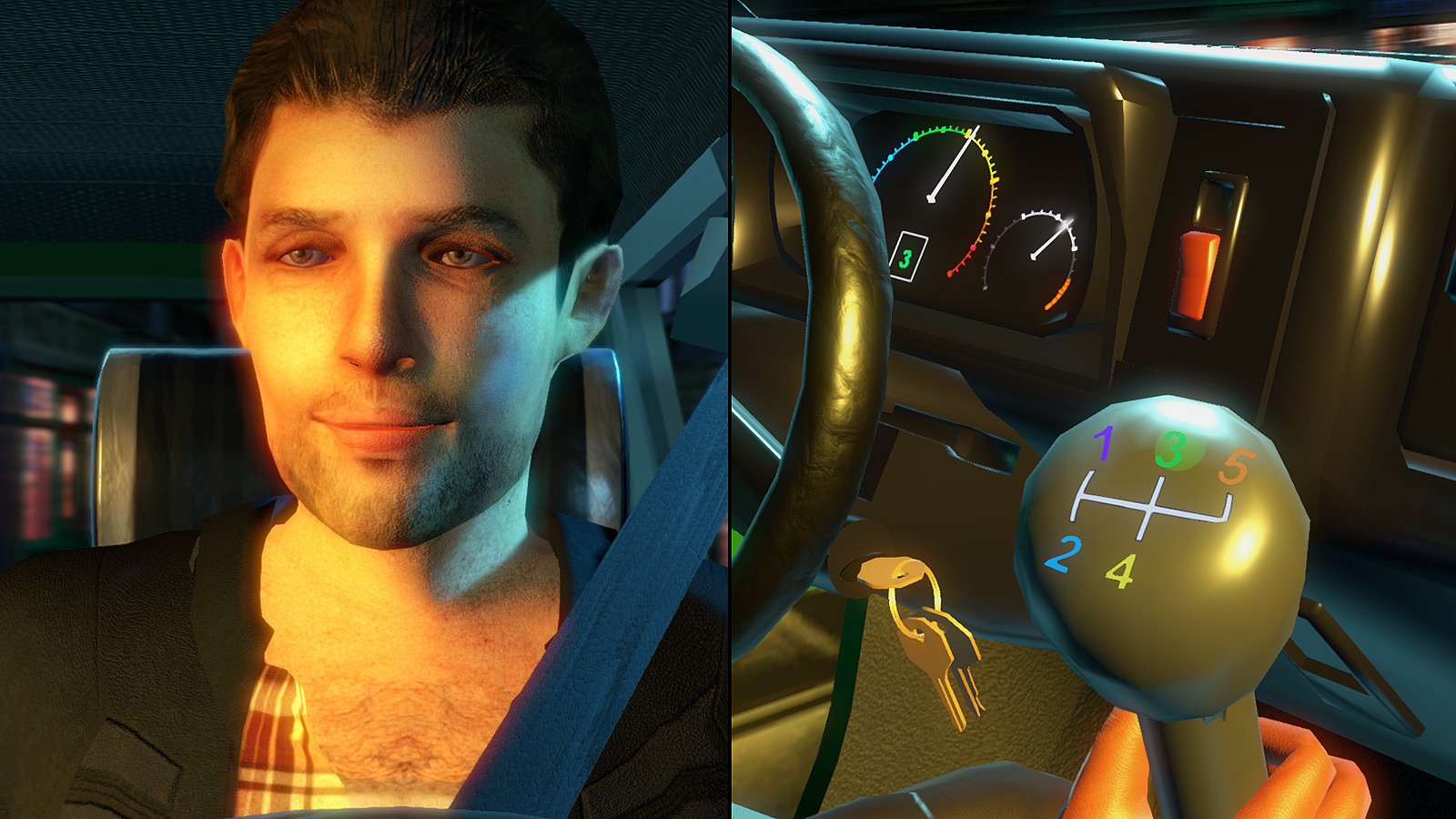
Kotaku: There’s this mentality on Steam forums where, if someone is doing even basic moderation, they’re somehow curtailing free speech or whatever. People get really up in arms about that. Have you experienced anything like that?
Robert Yang: Oh, definitely. That’s how homophobia and racism get dressed up as. like, “Oh, they just said gay people are disgusting. That’s not homophobic, they’re just exercising an opinion.” I’m just like, “No, that’s gross, what’s wrong with you?”
This is going to sound bad, but it’s not a free forum. Me banning you from this little message board of my game is not preventing your political participation in society. I think of it as, “You’re being gross to people and you’re creating abuse with all these people. I don’t want it here, so I’m going to ban you and delete your post.”
Kotaku: Before you released Radiator 2 on Steam, how were the individual games received? What did people think of them in various other corners of the internet?
Robert Yang: I would say the biggest reactions I noticed were usually from YouTubers and Let’s Players who would usually play my game. My games are, to put it mildly, interesting looking. You don’t really know what’s going on, but on the other hand, you also totally know what’s going on. They’re very short. They’re very scrutable or knowable, at least on the surface layer. I think that made them perfect for a lot of YouTube people to play them. I think it was kind of split between a lot of YouTubers going, “Oh, I don’t know what’s going on, aren’t video games crazy?” That’s their shtick, you know?
The shtick I really didn’t like, though, was people would be, again, cultivating that machismo, masculine kind of thing. Like, “Oh, I’m not gay. This is disgusting. I’m going to play this game and then I’ll cut to a webcam feed of me vomiting or doing a spit take or something.” That was kind of prominent along with a lot of YouTubers broadcasting my game. I was less OK with that, but at the end of the day I also have to accept that I don’t control how my games get received or performed or anything. That’s kind of the nature of video games. I have to share control with the player, even if the player is gross and does stuff I don’t like.
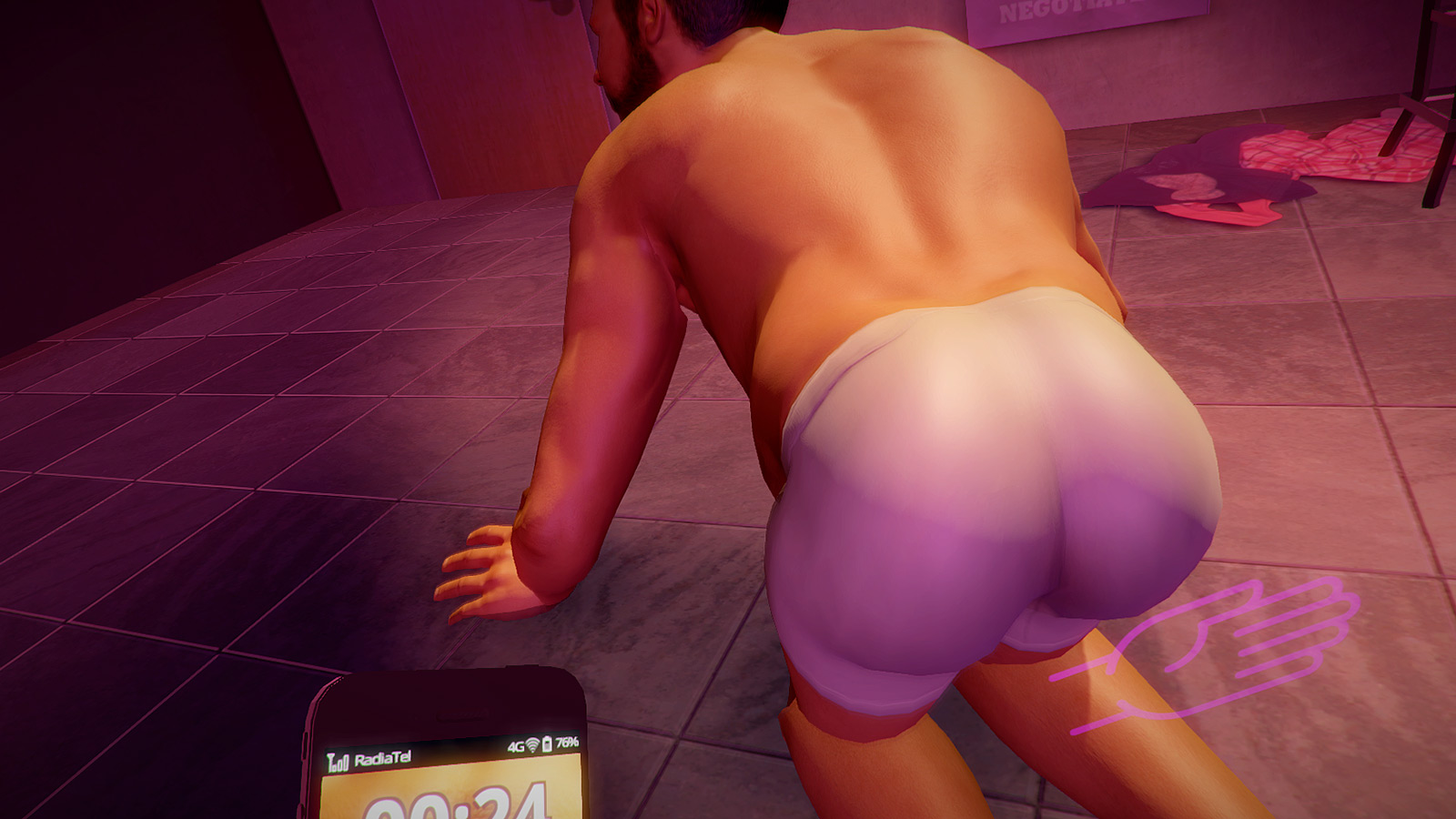
Kotaku: How do you design in response to the knowledge that YouTubers will be broadcasting and commentating over your games?
Robert Yang: I made Cobra Club, my dick pic game, when I was really upset with YouTube. I’m like, “Fine, I’m just going to put a giant dick in this game, and then you won’t be able to put it on YouTube. How do you like that?” Like, “Oh, you want to profit off my game so much? Well, here’s a game you can’t profit off.”
But then I eased back on that. In Rinse and Repeat, I censored the penises. I’m still, every day, thinking about, with these new games I’m making, that trade off. Like, should I make this good for YouTube? No, I should make this hard to understand unless you’re playing it. No, I should make this easily visible and understandable.
So yeah, a lot of it is that kind of friction. I’d like to say I’m not really spiteful, I’d like to say that I’m OK and happy for their success and getting all the ad money off my game for free and retelling all of my jokes. But yeah, I guess that’s what I’ve been doing in response.
Kotaku: Do you think that you’ll do another collection like this for Steam in the future, like with Cobra Club and some of the games like that in it?
Robert Yang: I’m pretty sure Cobra Club will not be allowed on Steam. Rinse and Repeat, I think will barely get into Steam. We’ll see. Seeing as it’s banned on Twitch, I don’t really know what the chances are. These three games in Radiator 2 are all fairly tame. That was another reason why they’re bundled together. There will probably be a Radiator 3 of three more sex games, though.

Kotaku: There’s an odd dichotomy on Steam in that there are a lot of increasingly risque sex games involving extremely busty women. But then, something like Cobra Club — in all its dicktacular glory — might not be allowed at all.
Robert Yang: There’s very few games with dicks. The Grand Theft Auto IV expansion has a few seconds of a dick. I have a mental database of this all. That PlayStation game, Order 1886, there’s one second we see a dick. In Far Cry 4, there’s a split second where you see your own dick. It’s all very brief, like “Oh, did I see it? Did I not see it? Ooh, this game is so edgy,” a little bit.
Kotaku: Right, and they’re not at all sexualized.
Robert Yang: Yeah, not at all, which I think is kind of dishonest. Those uses of dicks are literally for exploitation and titillation. I feel like my games earn their dick, but they’re still not allowed, and that’s not what those games get judged on for inclusion on Steam.
But in reference to the Huniecam-type games and sexy visual novels on Steam, yeah, there are a lot of them. I haven’t played any of them personally, but I would say that a lot of the responses on my Steam forum are people asking, “If these sex games had women in it, CNN would be reporting on this and everyone would get upset and the feminists would get upset.” But there’s a million of these games on Steam already. What planet are they living on where they don’t know about all these sex games?
I’m wondering how Christine Love’s upcoming release, Ladykiller in a Bind, is gonna do. I feel like Ladykiller and my games are actually about sex. I feel like Huniecam and stuff, it’s more… good for you if you like huge boobed anime chicks, you know? That’s fine. But I actually don’t like how the boobs are drawn in Huniecam.
Kotaku: They’re really weird. They’re all bulbous and round. That’s not how boobs work.
Robert Yang: I took a life drawing class, and one of the first rules you learn is, boobs are not spheres. Boobs have gravity and weight to them. They’re more like these big sacks of flesh. They’re not perfect, crystalline spears. That’s not what boobs are.
So on a craft note, I’m put off a little by that. I wish the boobs were better. But I think that kind of speaks to the different intentions between these different kinds of sex games. I feel like Ladykiller is really about sex. The boobs in Ladykiller are exquisite, they are very well rendered and drawn.
Kotaku: Yes, Christine makes them with love.
Robert Yang: Just the feel on them. When there’s a drawing of a hand grabbing a boob, that’s what a boob looks like when it’s being grabbed. That’s great. From a craft perspective, I would make that distinction between these different kinds of sex games.
Kotaku: I think your games explore sex mechanically, too. What actually happens when you are Doing It. And you abstract it, sure, with cars and stuff, but I don’t think that many other games, especially these sex themed Steam games, go into that much at all.
Robert Yang: Yeah. And that’s OK; not everything has to be represented by mechanics. But personally I am interested more in the idea of game feel and input and controls and gesture. Like in Stick Shift, you have to move your mouse up and down really fast to get your car going. Well, if someone is squinting from far away, it might look like you’re also choking your chicken. I wanted to evoke that idea in the game.
Kotaku: Yeah, I mean, if you really lay it out on paper, sex is one of the most gratifying tactile interactions in all of existence. Yet, it hasn’t really been explored through video games very much, a medium all about tactile experiences that feel interesting and rewarding. Sure, there’s a heavy biological component so it’s difficult to represent all of it, but you would figure that more people look at that and say, “Yeah, there are a lot of good things in there that we can learn from.”
Robert Yang: I feel like sex hasn’t been tackled as a big design problem because it’s so difficult, and it’s so difficult because framing sex in terms of conflict is kind of creepy, depending on how you do it.
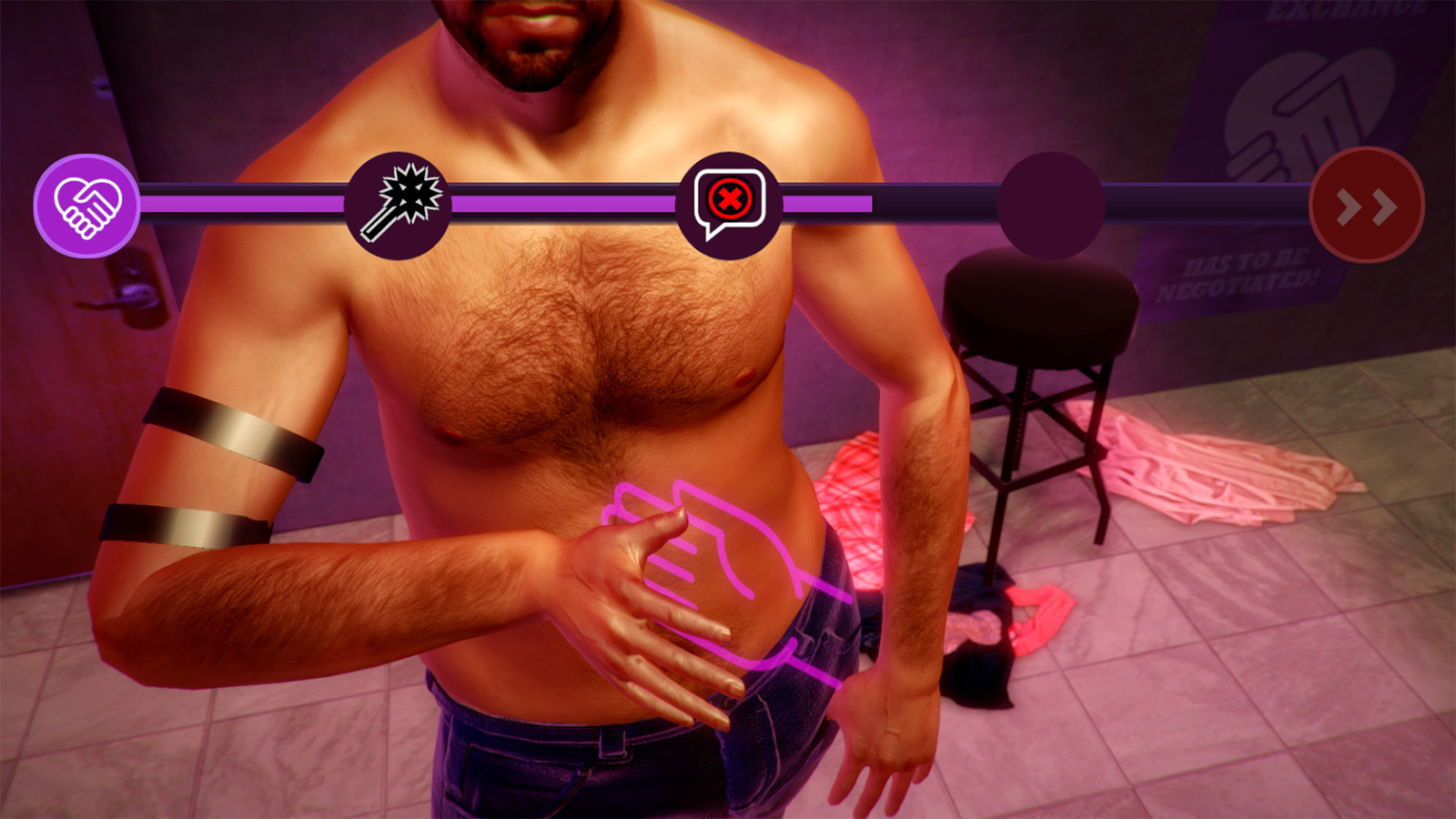
Kotaku: That’s definitely true. I think it would work much better as a co-op thing, as it should be in real life.
Robert Yang: Yeah, definitely. But then think about two very, extremely masculine, hetero dudes playing a co-op game where they have sex with each other. They might feel weird about that and they might not sell that many copies.
Kotaku: Yeah, whatever though. Make masculine dudes feel weird. That’s a good goal.
Robert Yang: I would buy it, I would buy ten copies. I would love it, but a lot of people think there’s no market for it, and they never develop for it, so there is no market and the self fulfilling prophecy and blah, blah, blah.
Kotaku: What’s next for you? I assume you’re going to do more games about sex. That’s, you know, my takeaway from all of this.
Robert Yang: The next sex game, I’ve been working on for a long time, start and go, stop and go, on and off, it’s a gay bar game. You’re in a gay bar, and there’s a hundred gay dudes. Then there’s one dude you can sleep with out of these hundred gay dudes. You have to do the gestures we do in bars. You have to sip from your drink, maybe go dance, go people watching, look at your phone a lot. You do a lot of these gestures and that kind of builds up to this climax where you might ask someone out and they might reject you, or something like that. It’s kind of this hook up, gay bar simulator thing.
That was heading in this very dark, negative direction where I was feeling really pessimistic about gay culture and gay rights and our priorities and stuff. But then the shooting in Orlando at a gay bar, Pulse, happened. When Pulse happened, it suddenly felt like I shouldn’t make a game that takes a shit on gay bars or gay hook up culture. For a lot of people, that’s kept them alive over the years. It felt like I had to change the direction of this game a lot, so that’s what I’m in the middle of doing. Kind of redesigning it to recognise more the beauty of gay bars.
There’s still some darkness in there. A lot of people don’t feel comfortable in gay bars, and there’s a lot of baggage with this. But I do want to recognise that for a lot of people, it was a really important, beautiful place. I’m trying to think about, game design wise, how do I reflect that and honour that. I’m trying to figure that out, but that’s a really hard design thing.
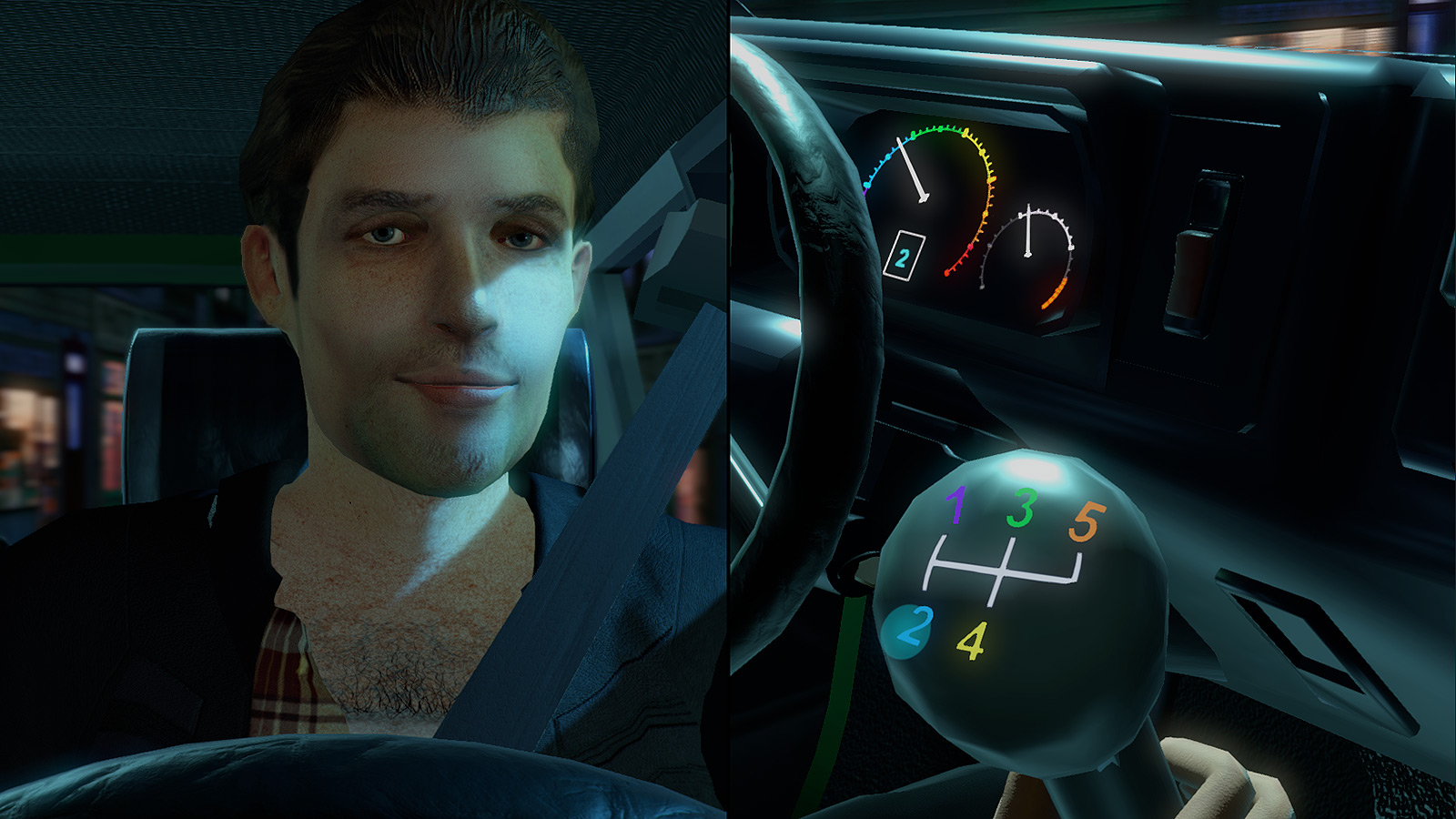
Kotaku: Speaking of Pulse, obviously E3 just happened and wrapped up, but it kicked off, literally, hours after the news broke about Orlando. For a lot of people in the gaming industry, it was hard not to associate those things, to say, “Well, we just heard about one of the biggest national tragedies in history, and now we’re off to go sell escapist fantasies.” What was your feeling on that moment, that sort of hurried baton hand off of topics?
Robert Yang: I think if people felt uncomfortable, they should feel uncomfortable. It doesn’t make sense. It’s really weird and really disconcerting. I think a lot of people would recognise that if you’re at E3, you have a job to do and it sucks to do that job even though all this other stuff is going on outside of that job, and that feels weird and maybe even inappropriate. But that’s what capitalism forces us to do, I guess. I was actually OK with a few publishers who did press conferences where they wore rainbow pins or something.
Kotaku: Yeah, that was a neat touch.
Robert Yang: I felt like that was an OK gesture. You’re not coming out and saying, “Oh, video games will help unite us and help us heal after this.” That’s bullshit, don’t say that, but I think if you’re wearing a rainbow pin you’re half acknowledging, “Yeah, this is all kind of bullshit but we have to do it anyway and it sucks. Sorry.”
Disclosure: Yang briefly contributed a column to a site I used to work for, Rock Paper Shotgun. We never worked together in any capacity, but it’s still worth mentioning.
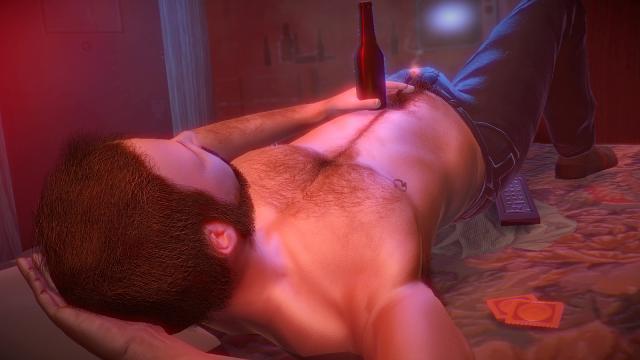
Comments
5 responses to “It’s Not Easy Putting A Gay Sex Game On Steam”
Dont know why steam needs sex games anyway
Or games anyway for that matter, such a waste of time! Why don’t more people go outside and play a sport, drive a car, soap up a guy, shoot kids in the face…… wait…
I’m gonna go out on a limb and suggest it might be because people have different tastes and some adults like those sort of games.
Given how mad people get when the games they want aren’t on Steam (e.g. EA’s titles), do you really want Valve making value judgements about what is sold on the store?
No one is forcing you to add the game to your library, it pops up a warning first if someone gives you a link to its store page, and you probably wouldn’t have even known it was on the store if you haven’t shown interest in similar content before.
I agree. It seems the only excuse people have is it’s 2016.
I have no idea what that Robert guy was on about the entire enterview, it made no sense what so ever….just sounds like derp derp to me.
Great interview Nathan, and thank you for the insight Robert.
The bit about identity and assimilation that was picked apart was a particularly good issue to highlight.